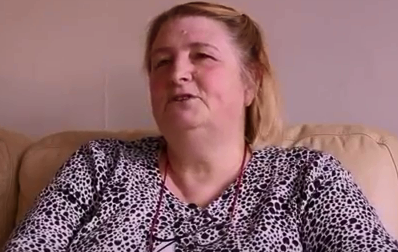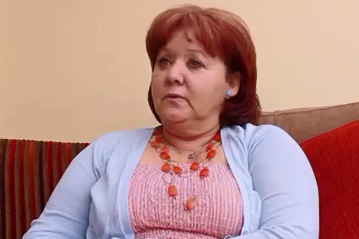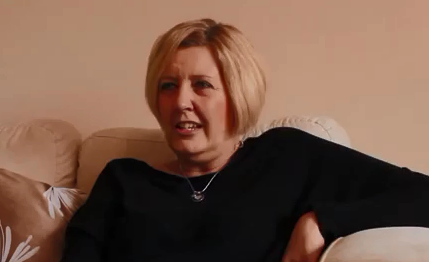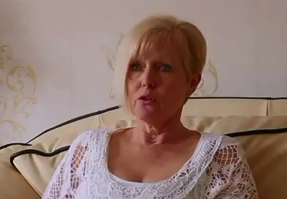This is a transcript for the video Could you house a teenager? created by Essex County Council to help recruit supported lodgings providers.
Transcript
Slide: Supported lodging recruitment film
Slide: Supported lodgings providers help young people in care who are aged 16 and 17 to develop self-care and independent living skills.
Music plays
Voiceover: We need supported lodgings providers to provide a stable home environment to young people who are aged 16 and 17.

Lynne from Coggeshall
Lynne from Coggeshall: It first occurred to me about becoming a supported lodgings provider was the fact that we used to rent the property out as a flat and we was always helping the people in the flat and we had youngsters and all sorts, so when I saw the ad for having young people between 16 and 18 I thought well we’ll go for that. We like helping people, so we made the phone call.

Debra from Harlow
Debra from Harlow: I suppose what first appealed to me was the fact that I could work with young people at home. I have done an awful lot of work with teenagers, youth work and otherwise and I thought it would be a nice opportunity to experience and be of service to young people in the home.

Kim from Howe Green
Kim from Howe Green: What first appealed to me about being a supported lodgings provider, was the fact that I had done fostering which was really 24/7 didn’t really give me much of a social life, freedom. I couldn’t really work and I needed that, and being a supported lodgings provider enabled that and I was able to complete doing the caring as well.
Slide: The average age of children leaving home is increasing, but young people in care leave at eighteen so it is crucial that they develop these skills and the ability to live independently.

Jemma from Canvey
Jemma from Canvey: The process of getting approved as a supported lodgings provider was regular visits from a social worker who came to my home and spoke to me about, my life from childhood, my family, my life experiences. The end result after about I suppose six to seven months was that I went before a panel to be and that wasn’t as daunting as it sounded.
Debra from Harlow: The process of approval, we’d never gone through anything like that before, so they asked all the questions I supposed you’d expect them to ask. I didn’t find it invasive. I think it’s important they know who they are getting to do this job so it was a bit long-winded, we thought it took every such a long time, but they have to do what they have to do.
Slide: There are young people in care throughout Essex, and supported lodging providers are needed across the whole county.
Jemma from Canvey: Being a supported lodgings provider day to day is initially quite hectic when the placement very first arrives there are lots of appointments and meetings to make in quite a short time span. Trying to get them settled in when maybe they’ve arrived late at night and you’ve got to go to work the next day, but once those first few arrangements are sorted out, it’s really just like having another family member, we settle down into a routine and live day to day as normal.
Lynne from Coggeshall: On a day to day basis, being a supported lodgings provider, I would say that it’s about having an open mind, keeping a diary most definitely because from one day to the next, you don’t quite know what’s going to happen. So our diary is our Bible. Everybody in our family and the people we look after use the diary. Some days it’s really quiet and you’ve got nothing to do and other days you’ll be running here there and everywhere.
Slide: Young people come from a range of backgrounds, and maybe in care due to issues in their families or maybe seeking asylum in the UK.
Lynne from Coggeshall: Well the challenges of being a provider is it’s tolerance. You have to learn about yourself, and you have to be tolerant. People you look after are not like you they are just from their world and you’ve just got to get into their world you can’t ask them to be you or your family. They’re who they are so I would say you’ve just got to be tolerant, open minded.
Debra from Harlow: Well I suppose for me the main challenge about being a supported lodgings provider is learning to live with lots of different types of people and personalities and learning what makes people tick and how best to support them really.
Slide: As well as phone and email support, providers have supervision on a regular basis with a member of the 16+ team, as well as training and annual reviews.
Jemma from Canvey: The rewards of being a supported lodgings provider are gaining these extra people into your family because you build a relationship with young people , you see them through difficult times and they don’t all forget that, some of them do. But you build a bond with them it continues. A Christmas here gets more people each year, because we don’t say goodbye when they move on unless they are the ones that choose to do that and we’ve gained some lovely family additions.
Debra from Harlow: On a personal level the reward for me is I enjoy watching young people grow and thrive and see their personalities come alive. I work with a lot of young people who are asylum seekers and for them, to see them grow, when they’re safe and cared for is an amazing reward.
Slide: To be a provider you need:
- to be willing to have an assessment completed with a social worker
- a spare room
- motivation to help make a difference
- time to support young people.
Jemma from Canvey: If I was going to try and advise someone who is going to become a provider, is firstly put yourself in the young person’s shoes. Imagine how you would feel if you were taken to a stranger’s house, you’ve been through a difficult time, you’re not feeling good, you know, imagine how you would feel. Have a heart when you deal with them, imagine what you would want someone to do for you if you were having that tough time and try and just build a rapport , have a good relationship that’s just the main advice I could give anybody.
Kim from Howe Green: I think the advice I would give is that there are specific goals and aims to help young people because you’re looking to help them sort of become independent. So there are things where you can say ‘Right this is what I can do’ so you can actually see what you’ve done. But I would also add that the team have been absolutely brilliant and really supportive and I’ve enjoyed working with them.
Lynne from Coggeshall: My advice for potential providers is to actually do it, if you feel that this might be for you then make that phone call and start the process it may not end up as you think it is now but it’s an involving thing and you will enjoy it definitely try it.
Voice over: If you would like to become a supported lodgings provider then give our team a call. Someone can come out and see and answer any questions you might have.
Slide: If you are interested in becoming a supported lodgings provider or would like more information please contact us by calling 01245 431957 or emailing 16plus.resources@essex.gov.uk.
